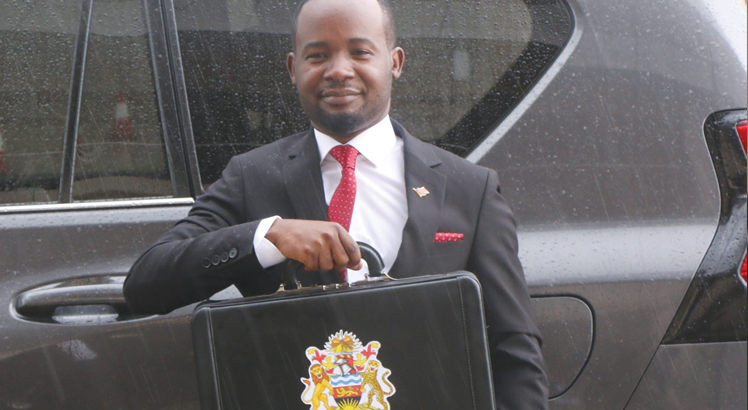New taxes coming up
Malawi Government has committed to the International Monetary Fund (IMF) that it will freeze recruitment in the public sector and introduce new taxes, mostly on beverages, to boost revenue generation.
In a Memorandum of Economic and Fiscal Policies agreed with the Bretton Woods institution, government said the public sector wage bill will be rationalised through a hiring freeze, except for frontline service delivery staff in health and education.

The employment freeze follows recommendations from a personnel audit conducted in 2021.
In the agreement with the IMF, the government further said it plans to introduce a requirement for printing tax stamps on alcohol, notably spirits, malt beer and opaque beer as well as energy drinks and soft drinks, among others, in the last quarter of the 2022/23 financial year.
Further, the government also intends to introduce a presumptive tax on small businesses with a turnover of below K12.4 million.
Reads in part the memorandum: “Furthermore, once these regulations are in place, by the end of November 2022 we will roll out the block management system in full to all commercial centres for the efficient management of revenue collection from small businesses.”
In his Mid-Year Budget Review Statement delivered in Parliament last week, Minister of Finance and Economic Affairs Sosten Gwengwe also said the government would freeze employment in the public sector to reduce expenditure in the second half of the 2022/23 financial year.
He said the government has revised upwards the provision for wages and salaries by K8.8 billion from K670.3 billion approved in March to K679.2 billion “on account of a higher than planned adjustment of 12 percent”.
At the proposed level, the wage bill will comprise 23.8 percent of the revised national budget and 5.9 percent of gross domestic product (GDP).
The revised budget will also incorporate additional reforms to those announced in March 2022, which include broadening the value-added t a x base and r e p e a l i n g tax exemptions to special economic zones.
In his reaction to the recruitment freeze, economic consultant and researcher Exley Silumbu commended the government for taking the steps to protect the economy w i t h o u t c omprom i s i n g on public service delivery in critical sectors such as education and health.
H e s a i d : “ C u t t i n g government expenditures across the board can harm public service delivery. But it is prudent for the government to rationalise employment and/or downsize when the economy is not performing well.”
In a separate interview, economic analyst Bond M t e m b e z e k a s a i d t h e employment freeze could undermine the government’s job creation agenda, but stressed that the government cannot continue employing p e o p l e w h e n i t h a s a constrained resource envelope.
He said the starting point should be creation of an enabling environment to creation of jobs.
Mtembezeka said: “The government needs to first endeavour to create an enabling economic environment where the public and private sectors c an cr e a t e me aning ful , sustainable jobs.”
On the taxes, he said introducing new tax measures will seem like the fiscal position is improving because “taxes in developing countries
term”, but would regress in the long-term as economic agents “adjust and curtail their exposure to these taxes”. are inelastic in the short-
In a WhatsApp response , he said : “Broadening the tax base is always important, but the fundamental issue presented is not really about broadening the tax base in that manner, it’s about supporting the economy in a manner which spurs economic activity. If economic activity improves, then tax revenue automatically improves.”
Concurring with Mtembezeka, Silumbu said the government may not meet the revenue targets if it cannot s t imulate economi c activity and revitalise the economy to a level where businesses can make profits in their respective industries.
S i l u m b u , t h u s , urged the government t o f o c u s i t s f i s c a l consolidation plan on creating incentives to stimulate the economy’s supply side by investing in infrastructure to s t imulate economi c activity and reduce e x p e n d i t u r e s t h a t promote consumption.
He cautioned that the protracted expenditures on consumptive budgets can increase government deficits which will then push up debt.
Last week, Gwengwe told Par l iament that Malawi’s total public debt rose 14 percent from K6.8 trillion in March to K7.3 trillion at the end of September 2022.
As a percentage of GDP, the total debt in nominal terms stands at 64 percent, 4 percentage points higher than the 60 percent threshold recommended by the IMF.






One Comment